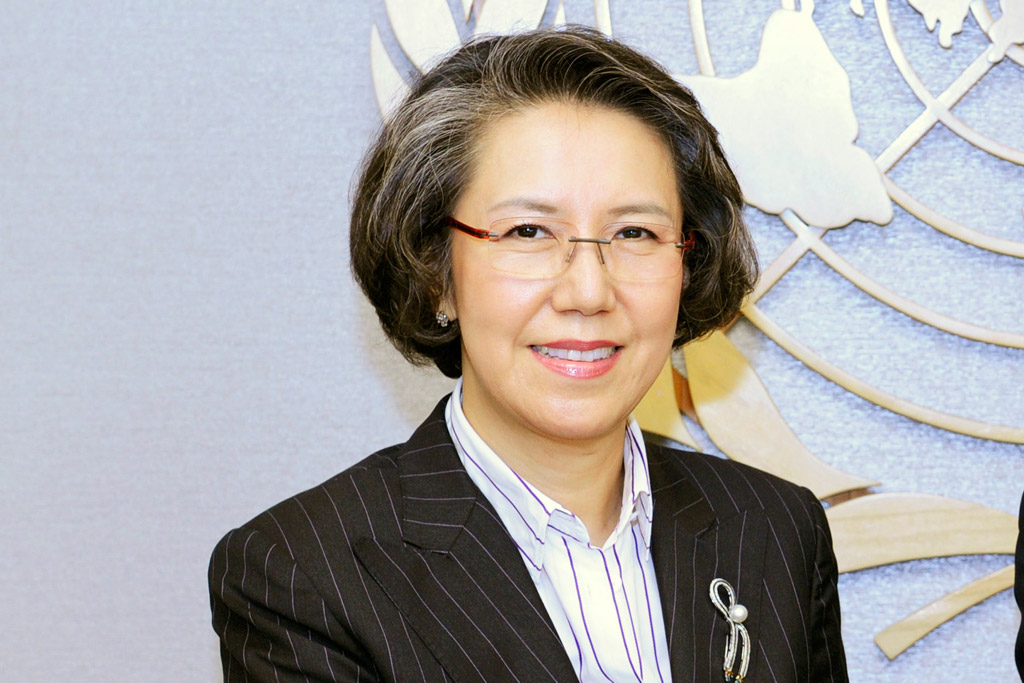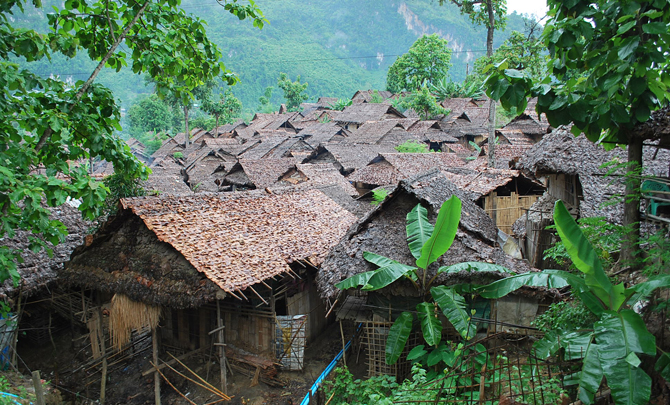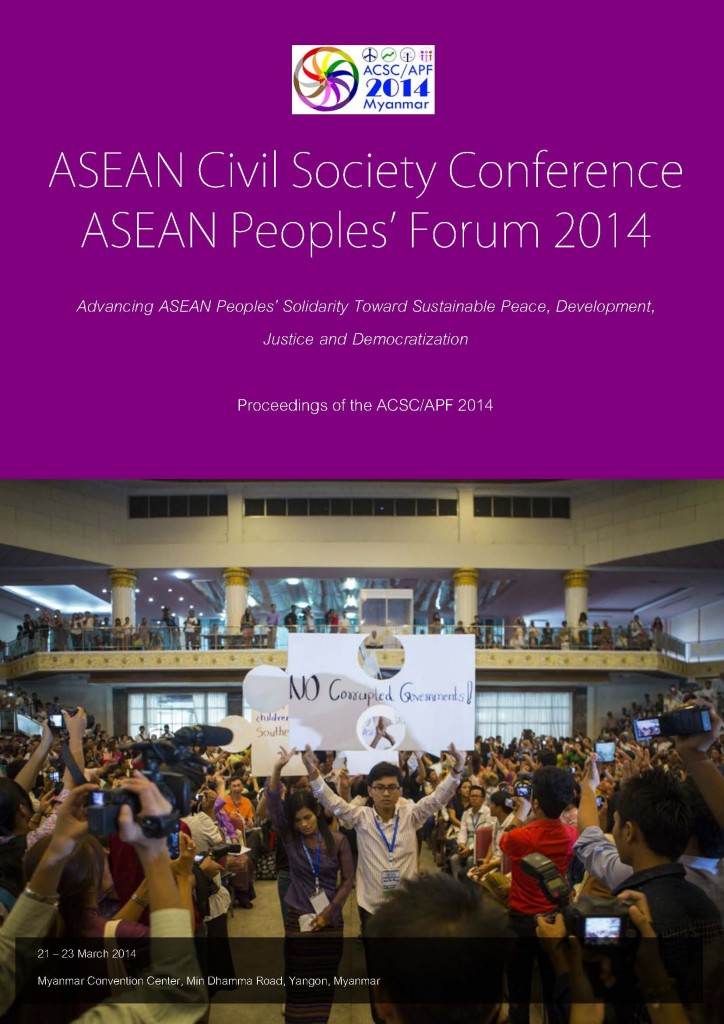Posts Tagged ‘Government of Myanmar’ (75 found)
Burma/US: Kerry Should Press Rights Concerns
(New York) – US Secretary of State John Kerry should press the Burmese government during his upcoming visit to reverse Burma’s deteriorating rights situation, Human Rights Watch said today. Kerry is scheduled to visit Burma from August 8 to 10, 2014, to attend meetings of the Association of Southeast Asian Nations (ASEAN) and the ASEAN Regional Forum (ARF) […]
• • •Myanmar: Release Rohingya Political Prisoner Kyaw Hla Aung
(BANGKOK) The government of Myanmar should immediately and unconditionally release Rohingya human rights defender Kyaw Hla Aung, who has been arbitrarily detained for 13 months, Fortify Rights said today.
A ruling yesterday by the Sittwe District Court in Myanmar’s Rakhine State again extended the detention of Kyaw Hla Aung, 74, despite that the prosecution has repeatedly failed to produce witnesses in his case. The Sittwe District Court denied him bail and set the next court date at August 18, 2014 […]
• • •ACSC/APF 2014 Post Conference Report
As a member of the Association of Southeast Asian Nations (ASEAN), Myanmar accepted the gavel that symbolizes the ASEAN presidency. This was a historic moment since this is the first time Myanmar has taken the Chair since it became a member of ASEAN. As Chair, Myanmar is responsible for hosting many important regional forums and events during 2014.
The ASEAN Civil Society Conference (ACSC), also known as the ASEAN Peoples’ Forum (APF), is held independently by the ASEAN Chair country in advance of, and parallel to, the official ASEAN Summit, which is attended by ASEAN and regional leaders. The first ACSC/APF took place in Malaysia in 2005. Since then it has taken place in the Philippines (2006), Singapore (2007), Thailand (2009), Vietnam (2010), Indonesia (2011), Cambodia (2012), Brunei (2013) and this year in Myanmar (2014). The 10th ACSC/APF took place on 21 – 23 March 2014 at the Myanmar Convention Center in Yangon, Myanmar.
• • •Multi-Faith Network Urges Secretary Kerry to Raise Religious Freedom Violations with Burmese Government
Members of the US-based International Religious Freedom (IRF) Roundtable, a multi-faith informal group of organizations and individuals advocating for freedom of religion or belief, have written to US Secretary of State John Kerry ahead of his visit to Burma, urging him make it a priority to discuss reported violations of freedom of religion or belief with the government […]
• • •Will the President of Myanmar Keep His Promise?
The veneer of progress is wearing thin in Myanmar. A year ago, the President of Myanmar, Thein Sein, promised to release all prisoners of conscience. Earlier this year, to mark Myanmar’s Independence Day, the President ordered the release of thousands of prisoners. Now one year on from the promise to release all prisoners of conscience, the promise remains unfulfilled. Even more troubling is the fact that the government is arresting more prisoners of conscience […]
• • •New Special Rapporteur, Familiar Human Rights Abuses
 The new Special Rapporteur on the situation of human rights in Burma, Ms. Yang Hee Lee, concluded her first visit to the country on 27 November, and unsurprisingly, found the human rights situation troubling, warning of the potential of backtracking on initial reforms, an analysis that resonates with many Burma followers. She outlined her initial findings at Rangoon airport in a statement just as she finished her mission, highlighting the shrinking of democratic space, the ongoing religious violence and discrimination, the deteriorating humanitarian conditions for internally displaced persons (IDPs) – especially Muslims – in Arakan State, the severe human rights abuses in Kachin State, the urgent necessity for legislative reform and the rule of law, the lack of involvement of women in both the peace process and governance, the exclusion of local people in large scale development projects and the impact of such projects on vulnerable communities, and the continuing incarceration of political activists, among other issues.
The new Special Rapporteur on the situation of human rights in Burma, Ms. Yang Hee Lee, concluded her first visit to the country on 27 November, and unsurprisingly, found the human rights situation troubling, warning of the potential of backtracking on initial reforms, an analysis that resonates with many Burma followers. She outlined her initial findings at Rangoon airport in a statement just as she finished her mission, highlighting the shrinking of democratic space, the ongoing religious violence and discrimination, the deteriorating humanitarian conditions for internally displaced persons (IDPs) – especially Muslims – in Arakan State, the severe human rights abuses in Kachin State, the urgent necessity for legislative reform and the rule of law, the lack of involvement of women in both the peace process and governance, the exclusion of local people in large scale development projects and the impact of such projects on vulnerable communities, and the continuing incarceration of political activists, among other issues.
We welcome Ms. Lee’s open and honest discussion of the term “Rohingya” and her pledge to be guided by international human rights law as regards the use of this term. This was despite the insistence of government officials not to use the word “Rohingya” throughout her trip to Arakan State. On the basis of this principled stance, we are reassured that Ms. Lee will not flinch from using the term when appropriate in the future. After visiting two camps for IDPs, one for Arakan Buddhists and one for Rohingya Muslims, Ms. Lee was troubled by both the terrible conditions in the camps and the lack of humanitarian access that is resulting in people dying due to insufficient medical assistance. She also acknowledged that this situation is “undeniably worse” in the camp for Rohingya. While she did not explicitly state that this is a situation engineered and maintained by the authorities, it is obvious that the unequal treatment of Buddhist and Muslim IDPs is a deliberate policy by the government that further punishes the Rohingya simply due to their ethnicity.
• • •Statement of the Special Rapporteur on the Situation of Human Rights in Myanmar
Introduction:
Good evening and thank you all for coming today. I have just concluded my first official ten- day mission as Special Rapporteur on the situation of human rights in Myanmar. The objective of my visit was to assess the human rights situation in Myanmar through a better understanding of the realities on the ground. Accordingly, I sought to engage constructively with a broad spectrum of stakeholders, including Government officials, political, religious and community leaders, civil society representatives, as well as victims of human rights violations and members of the international community. I was pleased to have had a frank and open exchange of views on a range of matters related to my mandate. And I am grateful that many were so forthcoming in their views on sensitive issues […]
• • •Statement on Repatriation of Refugees from the Thai–Myanmar Border
The Asia Pacific Refugee Rights Network (APRRN), a growing network of 194 organizations and individuals from 26 countries, expresses its grave concern over the recent announcement by the Royal Thai Government regarding the repatriation of refugees living on the Thai – Myanmar border back to Myanmar (Burma). While the announcement does not specify a particular date for repatriation, the intent of the announcement does raise serious humanitarian concerns […]
• • •Flurry of Rumor and Counter Rumor Regarding Repatriation is Detrimental to Refugees
 A week ago, rumors began doing the rounds that the Thai military plans to repatriate the 130,000 or so displaced persons from Burma living in nine camps in Thailand along the length of the Burma-Thailand border in the relatively immediate future. The rumors started when General Prayuth Chan-o-cha, Head of the National Council for Peace and Order (NCPO), mentioned that the refugee issue had been discussed with Senior General Min Aung Hlaing, Commander-in-Chief of the Burma Army. On 14 July, the Bangkok Post then quoted an unnamed Thai military source saying that working teams have sorted 130,000 refugees into three groups as part of preparations to send them home, a process expected to take around a year or more. A Burma Border Guard Force officer also told Mizzima on 15 July that armed ethnic groups in Karen State would allegedly cooperate in the resettlement of refugees on their return home.
A week ago, rumors began doing the rounds that the Thai military plans to repatriate the 130,000 or so displaced persons from Burma living in nine camps in Thailand along the length of the Burma-Thailand border in the relatively immediate future. The rumors started when General Prayuth Chan-o-cha, Head of the National Council for Peace and Order (NCPO), mentioned that the refugee issue had been discussed with Senior General Min Aung Hlaing, Commander-in-Chief of the Burma Army. On 14 July, the Bangkok Post then quoted an unnamed Thai military source saying that working teams have sorted 130,000 refugees into three groups as part of preparations to send them home, a process expected to take around a year or more. A Burma Border Guard Force officer also told Mizzima on 15 July that armed ethnic groups in Karen State would allegedly cooperate in the resettlement of refugees on their return home.
However, according to DVB, Colonel Weerachon Sukondhadpatipak, a spokesman for the Thai military, refuted the rumors: “I don’t think this [repatriation] will happen at this moment. It is an issue we need to solve, but it doesn’t mean we are sending the Burmese people back to [Burma],” Weerachon said. “It is a long process that needs to be discussed with all concerned parties.” Indeed, nationalities would first need to be verified and people head-counted […]
• • •











 All posts
All posts